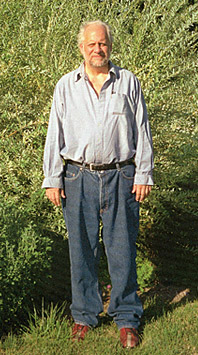Welcome to the Garden Party
As Election Day nears, I issue an appeal to my fellow gardeners: Make yourself heard. Leave off your harvesting, raking and mulching for a minute and broadcast, not just your spring bulbs, but your beliefs.There are approximately 78 million gardeners in the U.S. – a number greater than either major political party. It is time we combined forces to effect change outside of the garden. I have a name for this new political force: the Garden Party. If I were to promote an ideal man or woman for public service, I would begin with the qualities of the Founding Fathers—farmers and planters all: pertinent, pragmatic, observant and humble. Among others, these are the key ingredients of a successful gardener.In this cacophonous culture, gardeners are conspicuously quiet – too quiet. They are not the rabble-raising sort. Oh, gardeners may disagree among themselves about the relative merits of heirloom and hybrid tomatoes, or differ over starting from seeds or transplants. I know a celebrated gardening writer who will have nothing to do with purple flowers; there, alas, her militancy ends.You don’t see politicians laboring in their garden for photo ops; they’re too busy jogging, playing golf or duck hunting—foreplay compared with dividing perennials or digging potatoes. Gardeners have no high-paid K-Street lobbyists; politicians blithely ignore them. Not for them the argy-bargy of the Sunday morning talk show circuit. You don’t hear them braying on talk radio or read their soil-smudged vituperative letters to the editor. Gardeners are still the Silent Majority.So where are the gardeners? Why are they so quiet? Easy: they are in their gardens. They are too interested to become a special interest group. Lobbying is distasteful to gardeners as, by definition, it requires being indoors. But when a group is as conspicuously quiet as America’s gardeners, it makes great sense to listen to them.We are, after all, a nation of gardens. Rather than isolated spots in the landscape, let’s view the country as a rump republic of gardens, partitioned by buildings, roads and forest. The Great American Garden stretches from sea to sea, made up of gardens big and bold, or modest and demure—and some as small as a window box. In the garden contradictory points of view converge. <
In the Great American Garden the capitalist and the socialist, the laissez-faire and the doctrinaire, the Christian and the pagan can find common ground. They have to.
For in the garden, extremes and imbalance of any kind will reap a bitter harvest.
Here are the essential traits of the successful gardener that our country’s policymakers might do well to emulate, particularly as we approach midterm elections.
Down to earth – Gardeners must first of all be pragmatic, squarely focused on facts and events rather than abstract ideas. In the garden, experience shows, and grows.
Planning – A skillful gardener is a good planner. I have rarely seen a beautiful or productive garden that was not thought out well in advance. Gardeners take the long view.
Love of nature – Gardeners share an abiding love of plants and nature. They are exquisitely attuned to the climate and soil conditions. Politicians intimately connected to nature would devise environmental policies that reflect this. Our greatest leader in this regard was Theodore Roosevelt.
Expediency – Decisiveness is second nature to a gardener. Gardeners know when to drop everything else and tend to the problem at hand. Knowing what to do is useless if you fail to respond at the right moment.
Observant – The best gardener keeps a very close eye on plants, soil, temperature, sky, tools, children, bugs, pets – and predators.
Adaptable – Flexibility is the essence of diplomacy, and indispensable to a successful, experienced gardener. It requires a lot of careful trial and error before you arrive at the solution.
Resourceful – In the garden, we often lack the tools we need, forcing us to improvise. Our leaders are frequently called upon to do things beyond their presumed capacities, and the best ones show that they had them all along.
Humility – The word “humility” derives from “humus”. As a gardener, you can’t do it all by yourself. Knowledgeable, experienced people will help you just for the asking. Politics, like gardening, is a humbling experience; awareness of one’s limits is key to long-tern survival.
The Bible, Oscar Wilde observed, begins in the garden and ends in Revelations. This is certain: if politicians adopt the habits and perspective of the successful gardener, it will be a revelation. Join us.
SEATTLE POST-INTELLIGENCER 10/25/06
